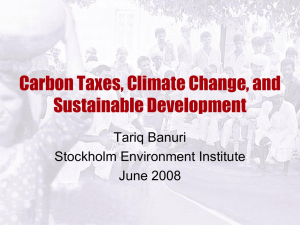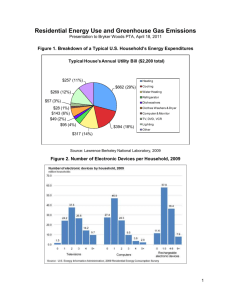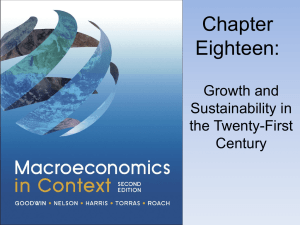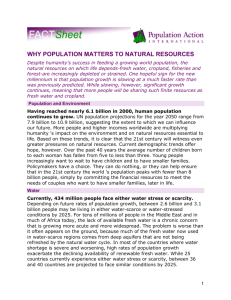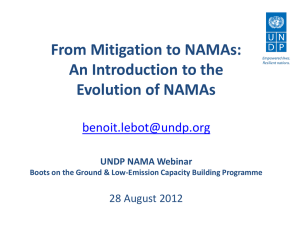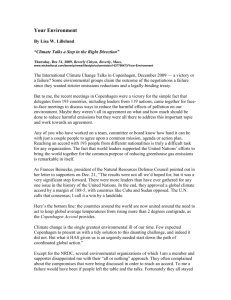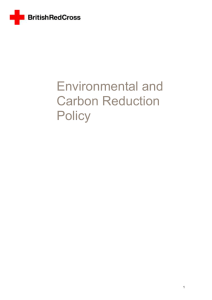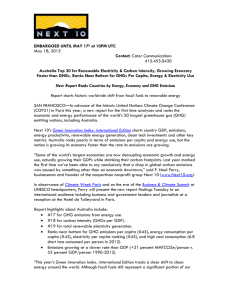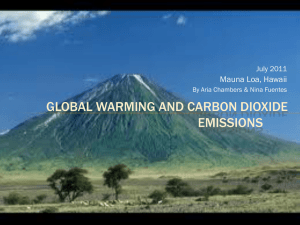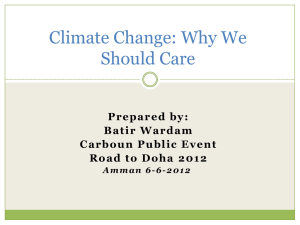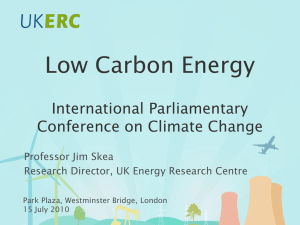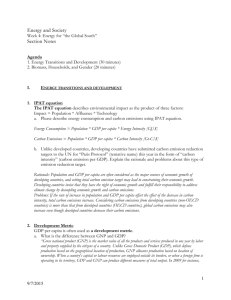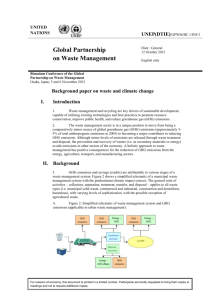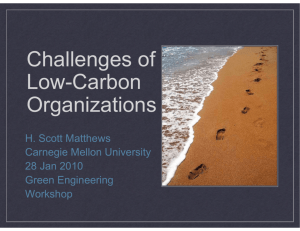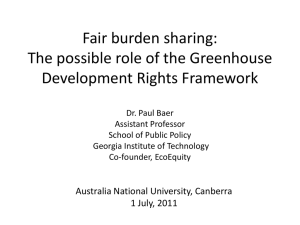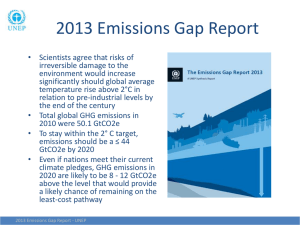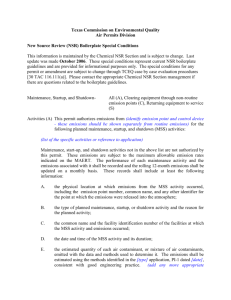Climate_Policy
advertisement
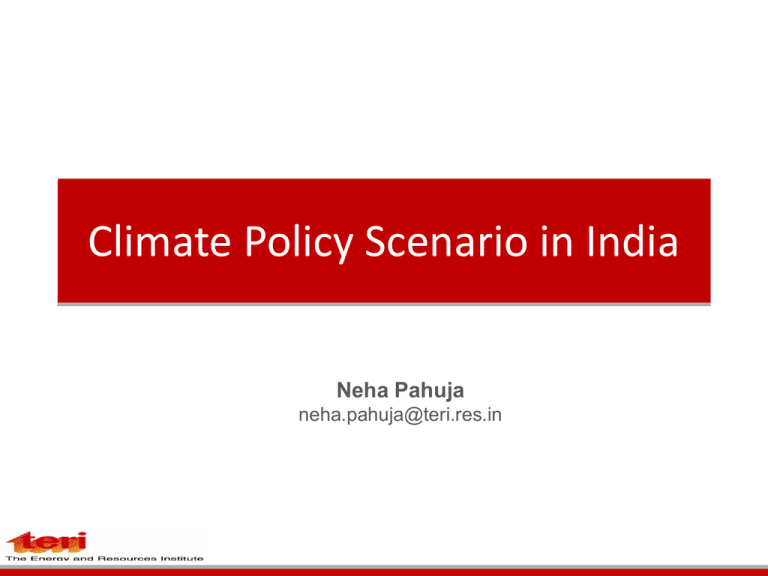
Climate Policy Scenario in India Neha Pahuja neha.pahuja@teri.res.in Outline India: developmental challenges & growing emissions India: mitigation policy scenario Increased efforts: NAPCC, Copenhagen Pledge India: key negotiating position India: development indicators Rapid economic growth Development of Infrastructure (Roads, Railways, Power, Electricity transmission, Water supply) Electricity for all by 2012 Galloping mobility demands Stagnating domestic production of energy resources Budgetary constraints India: the energy challenge Approximately 470 million Indians live without electricity almost 8% of World Population Traditional biomass is the primary cooking fuel for over 700 million Indians 80% of the population is below the income level $2 a day respectively Low HDI due to lack of access to commercial energy - illiteracy, poor health India’s per capita commercial energy consumption is about 20% of the world average, 4% that of the US and 28% that of China To uplift the bottom sections of its society, India needs a sustained GDP growth of 8 - 9 % every year for the next 25 years this is not possible without Provisions of Modern Energy India: Emissions Profile Source: INCCA Workshop, May-2010 Trends: Future Projections Source: MoEF, September-2009 India’s plans and targets Source: FICCI Task Force on Climate Change: December 2007 Increased efforts- 24 initiatives Source: MoEF, January, 2010 PM council on climate change in action June 30, 2008- PM releases India’s first National Action Plan on Climate Change (NAPCC) Outlines existing and future policies and programs to address climate mitigation and adaptation Identifies eight core-national missions (through 2017) Pledges that India’s per capita GHG emissions will at no point exceed that of developed countries Long-term convergence of per capita emission In addition: Copenhagen Pledge-20-25% intensity target (Low carbon committee) Eight Missions National Solar Mission National Mission for advanced Energy Efficiency National Mission on Sustainable Habitat National Water Mission National Mission for Sustaining the Himalayan Ecosystem National Mission for Green India National Mission on Sustainable Agriculture National Mission on Strategic Knowledge for Climate Change India & NAMAs Global issues – Negotiations inconclusive and ambiguous on implementation issues – Uncertainty over Kyoto commitments and instruments – Uncertainties about carbon market mechanisms – No significant progress on definitional issues pertaining to NAMAs India & NAMAs - II India’s Stand – Voluntary, legally non-binding, guided by over-riding development priorities - No ‘peaking year’ for emissions – Emphasis on public funds - essential for financial sustainability – Multilateral mechanism for technology transfer, accelerated adoption, capacity-building, and support networks Where do we go .. •Different proposals- domestic, supported, credited, sectoral… •ICA/MRV/ or both.. But what is it? •Linkages with other mechanism- Green Climate fund, technology mechanism, CDM…? •Private sector participation?
